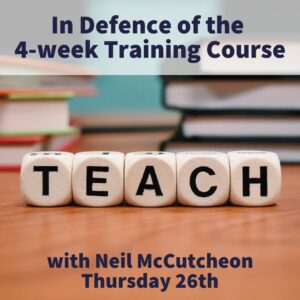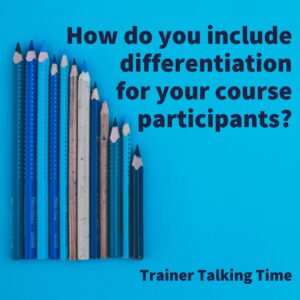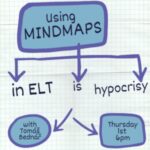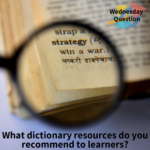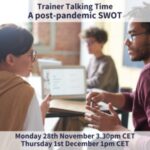Hub digest – 1st February, 2023
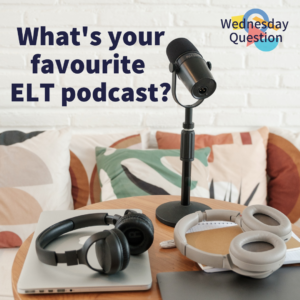
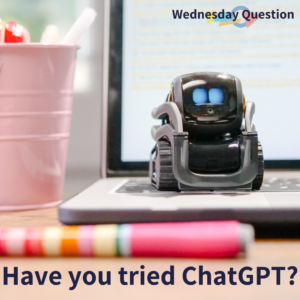



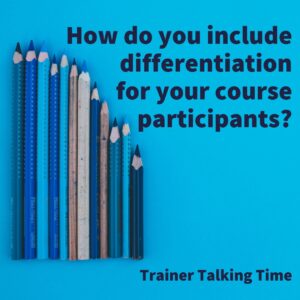
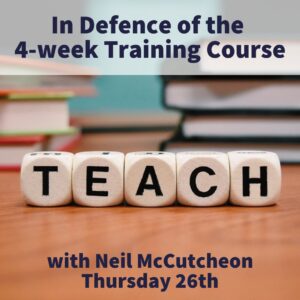

It’s been a pretty chilly month here in Spain, but the Hub is full of warmth as always!
We kicked off the year with a couple of great webinars: Teaching Communication Skills Using Formulaic Language and In Defence of the 4-week Training Course, had our next Trainer Talking Time on the topic of differentiation and got people thinking with our Wednesday Questions:
- What’s your favourite ELT podcast?
- What’s your favourite culturally-specific bit of language?
- What are your go-to resources for Business English?
- Have you tried ChatGPT?
- What’s your favourite coursebook series for young learners?
Melissa asked about post-pandemic hiring and Blanka asked us to share ideas on how we slow down 😍 And Jack shared some great questions which got us chatting about breakout rooms.
At the very end of December, Erin posted a poll asking “What’s your biggest issue as a teacher?” Some interesting results and comments there 
Silvina shared more fabulous resources, this time on accent bias and innovation, whilst Catherine shared links to her one-minute games on World Braille Day, Chinese New Year and Welsh Valentine’s Day. And Bhavna had another wonderful story resource for My Brother’s Wheeeelchair.
The chat around AI continued, with Sean sharing a link to his next episode of Ethos English on the topic. There was an interesting question from Fiona as well about apps which young learners can use to learn English and communicate with other learners and she also shared a link to a new game being developed for learners to review language. Also on the topic of young learners, Vanessa shared a link to the YLTSig event that happened mid-January…I believe the recordings are available. Antonio was also looking for tips for working with teens for the first time as well.
In Defence of the 4-week Training Course – with Neil McCutcheon
Summary notes coming soon!
Teaching communication skills using formulaic language – with Kelsea Mucherino
Summary notes coming soon!
Trainer Talking Time: How do you include differentiation for your course participants?
Thanks to everyone who came along to this month’s Trainer Talking Time. The notes are a bit of a stream of consciousness, but I’ve tried to separate them out a little into different themes.
Using different platforms
Not just moodle or your LMS of choice but, e.g. using Telegram or Slack for chat and a potential backchannel during observations.
Offering alternative means of communication between trainers and CPs – but without overwhelming them, e.g. use email to subit work, using Slack to ask questions.
Different channels can facilitate types of communication (e.g. using audio more than text). Who’s interacting with what they post? Will everyone be able to interact with the content (e.g. a deaf CP and audio input).
Facilitate regular communication about their preferred means of communication and adapt as necessary (i.e. they might say aduio notes are best at the start but as the course progresses, realise that text is more feasible).
What about the time it takes for CPs and trainers to create and consume content? Written tends to be quicker to engage with. From a centre’s point of view – do they offer fixed rates for marking whatever the format?
In terms of submitting work – offering options/choice and also whether people decide to share their thoughts with others or if it’s private reflections.
A key consideration: What’s the most practical format for each task?
Supporting course participants
Moving into inclusivity and the application process. “Do you have any SEN?” could be changed to something more ‘welcoming’, e.g. “What sort of learning differences do you have? And how can we help?” Helps to fight some of the stigma around SpLDs. This means you can get input from the people who are affected and find a way to make the course work better for them.
Make more of the application / interview process to really get to know the person and their needs, e.g. time management, managing commitments whilst taking a course (family, work). Building rapport, making it clear it’s not a gatekeeping issue, how we phrase our questions both in the form and when we talk in-person, where it comes during the process. One-sentence scenarios to reflect on how they might respond in a situation. Can you give people an experience of what to expect before starting?
Personalisation
MENTORING! Teachers really get to focus on what they want and need in a personalised way. And training other people to take on that role. Moving into a training role also helps you to become a more effective teacher.
A move away from designated tasks in teacher observation (in-house) – Jim and co. offer observation and reflection menus…some require more work on the trainer’s part and the teacher e.g. the self-observation requires more work by the teacher. Jim said folks are welcome to contact him to get copies of the menus 😁
What type of ‘learner training’ is involved in offering choice? You can also push people out of their comfort zones by taking away the most popular choice the next time round. Gives people a sense of ownership and responsibility. The amount of training may also depend on experience.
Templates or variety?
Using criteria for observation / are systems and structures in place too rigid for some CPs? e.g. for a lesson plan How could you include all these different elements in a format that works for you? Bottom line is that certain things need to be done / requirements met and as a trainer, if you get six LPs and know what to look for in each section, it’s much easier than get six slightly different documents.
Are there optional parts on a form? So there could be minimum requirements and then extras that people have the choice of adding in. Have a checklist for lesson plans for both the tutor and CP to check they’ve covered the basic requirements.
Include a section on lesson plans for observations: How inclusive is your classroom? A very open question, which can be interpreted in different ways and shows how different people interpret it. This increases course participants’ awareness of inclusivity and differentiation.
Time
Flexibility in deadlines – planning the course with built-in leeway, e.g. a four-week block (three weeks’ input plus one week to catch up or use the time to get ahead with the next block’s work). Centres impose deadlines to get people through the course (e.g. anything submitted after the course date for Trinity Cert is late and requires extra payment). Being an adult in a professional environment, deadlines are a thing! Why might someone struggle with deadlines? Are the deadlines unrealistic? Levels of motivation might be high at the start but perhaps not aware of the actual workload? Is there a particular event which caused them to get behind? Explaining why the deadlines are there can help people see the rationale for them.
Dealing with ‘difficult’ CPs – tends to be difficulties with the format of the course. Some people require more support than others. How do we include without ‘limiting’ what we offer to other people? If person A requires extra support, does that mean person B misses out on trainer time which could help to push them in other ways? (equality and equity) With pre-service courses, we want to get people to the minimum required – and course providers assume everyone will get to that point through interview process.
The way we approach these conversations, rather than asking What do you need to do in order to complete the course? to How can we be inclusive at this point?
With adults, should they not be more responsible to get what they need from the course?
Inclusivity is the aim, differentiation comes through the strategies.
Hub digest – 30th December, 2022
It’s very nearly the end of 2022 and what a wonderful year it’s been in the Hub! Thanks to everyone who supports the group by posting and commenting and to the fabulous folks who give up their time to share their experiences and expertise in our fortnightly webinars. It’s still been pretty busy in the Hub this month, though with lots of festive cheer: Tomáš Bednář kicked off the month wearing a festive sweater in his webinar on mindmapping and later in the month, Neil McMillan shared ideas for incorporating TBLT into exam-prep classes. And they both offered Hub members discounts for Mapulary and the course TBLT: from theory to practice. We also saw a return to Trainer Talking Time, with some folks getting together to discuss teacher training post-pandemic. And, as always, we had some engaging Wednesday Questions, including a return of 2020’s list of festive lesson ideas.
- How do you help your learners stay organised?
- What dictionary resources do you recommend to learners?
- How do you use music in the classroom?
- Do you reflect at the end of the year?
AI was a big topic this month – I gave it a go with an AI-generated image one week and a welcome text the following week. Blanka posted an article on the future of teaching and learning alongside AI and Sean shared a link to his latest podcast episode asking if ChatGTP is the future of language learning.
Christopher reached out to ask about strategies for finding new clients and Louise posted an interesting question about qualifications and whether they will help you to earn more. And if you’re looking for lesson ideas, Catherine shared her one minute games channel on YouTube,
Also at the start of December, Kate shared details of a professional development day to support Ukraine. This one was held on December 10th, but there are plans for more sessions in the future, so keep an eye out.

